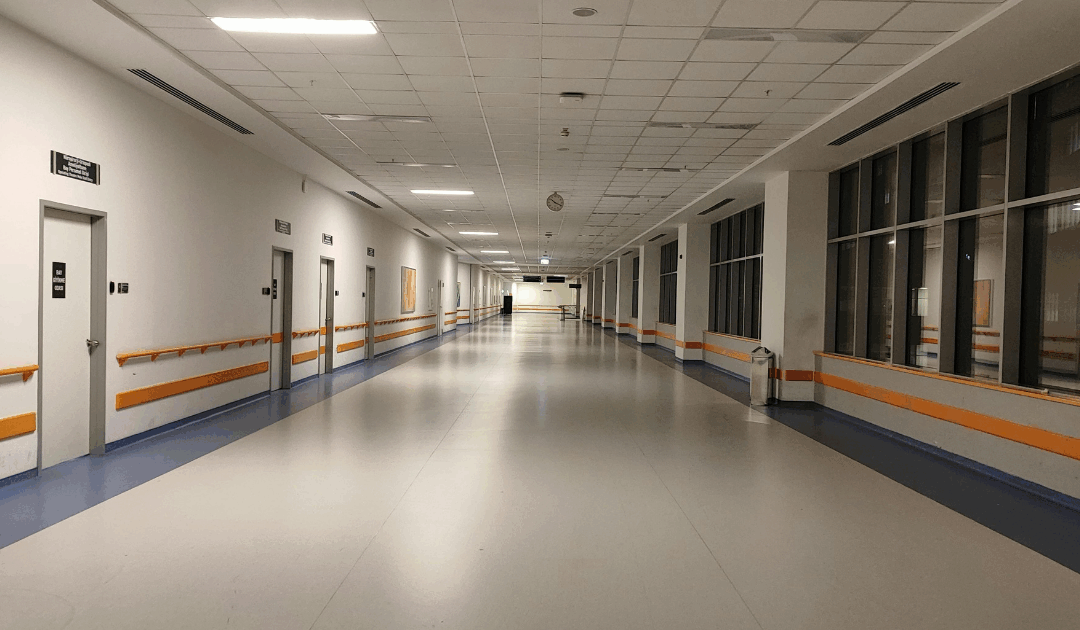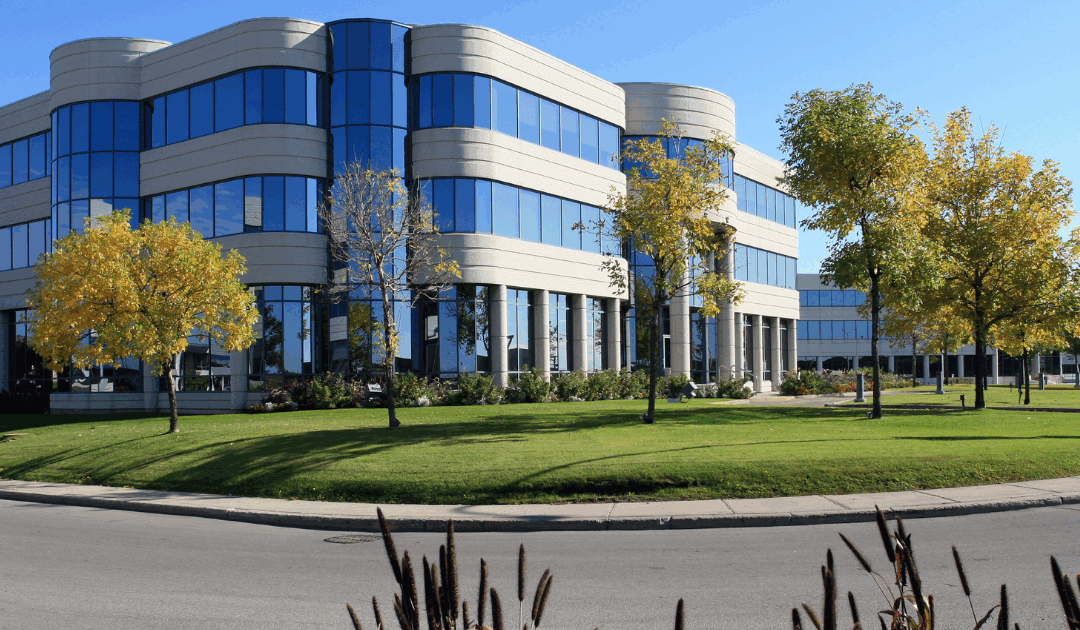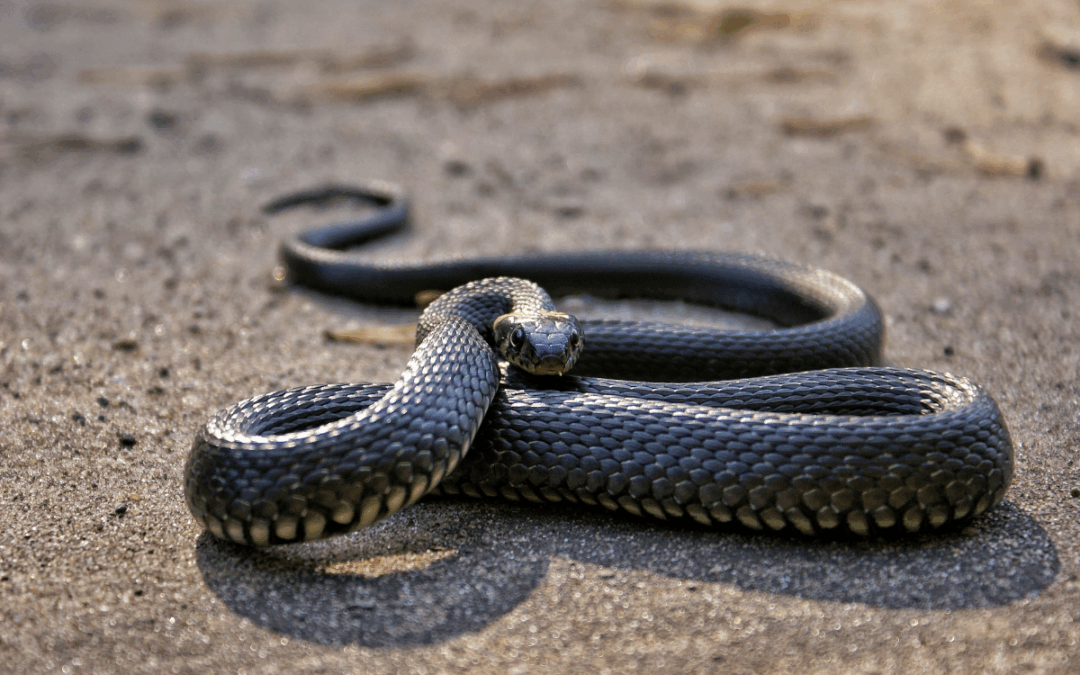READY TO GET STARTED?
REQUEST A FREE ESTIMATE
Fill out the form below or call (888) 466-7849 for a free, no-obligation estimate.

Maintaining a pest-free environment is essential for any business. It protects your reputation, ensures compliance with health regulations, and provides a comfortable atmosphere for employees and customers. For modern businesses, the method of pest control is just as important as the result. An eco-friendly approach not only addresses pest issues effectively but also aligns with corporate responsibility and customer expectations. Choosing the right eco-friendly pest control service is a critical decision that impacts your operations, brand image, and bottom line. With a growing number of providers claiming to be “green,” it can be challenging to identify a partner that offers genuine, effective, and environmentally conscious solutions. This guide will walk you through the key considerations for selecting a commercial pest control service that meets your business’s specific needs.
Opting for an eco-friendly pest management strategy, often called Integrated Pest Management (IPM), offers significant advantages for a commercial property. IPM is a holistic approach that prioritizes long-term prevention by understanding pest biology and behavior. It focuses on minimizing reliance on chemical applications by using exclusion, sanitation, and monitoring as the first lines of defense.
Making an informed decision requires looking beyond marketing claims. A truly professional eco-friendly service will be transparent about its methods, experience, and qualifications.
Commercial pest control is not a one-size-fits-all service. A provider with experience in your specific industry will understand the unique challenges and regulatory requirements you face. Whether you manage a restaurant, a healthcare facility, a warehouse, or an office building, your provider should be able to develop a customized IPM plan tailored to your environment. Ask for case studies or references from businesses similar to yours.
Inquire about the specific methods and products the company uses. A genuine eco-friendly provider will emphasize a multi-faceted approach.
Professional commercial pest management includes detailed documentation. Your provider should offer clear, consistent reporting after each service visit. This documentation should outline what was observed, what actions were taken, and what steps your business needs to take to support the prevention plan. This is crucial for tracking progress and demonstrating due diligence for health inspections.
Choosing an eco-friendly pest control service is about finding a long-term partner dedicated to protecting your business. An effective IPM program is a collaborative effort between your staff and the pest management provider. The right partner will not only treat existing problems but will also educate your team on best practices for sanitation and maintenance to prevent future issues.
If your business is ready to implement a responsible and effective pest management program, it is time to consult with an expert. A professional commercial pest control service can conduct a thorough assessment of your property and develop a customized, eco-friendly plan that protects your facility, reputation, and peace of mind. Contact a specialist today to learn how an Integrated Pest Management program can be tailored to your business needs.

December brings unique challenges for business owners. As temperatures drop, rodents like mice and rats move indoors in search of warmth and food, making commercial spaces a prime target for infestations. When signs of activity appear, the question quickly becomes: handle it yourself or call a professional commercial exterminator?
For businesses, pest issues are more than a nuisance — they threaten reputation, operations, and compliance. Choosing between DIY methods and professional pest control services is an important decision.
A rodent problem in a commercial setting can impact customers, employees, and your brand image. Rodents contaminate inventory, damage wiring and structures, and create unsanitary conditions. In industries like food service, hospitality, and healthcare, even one sighting can lead to failed inspections, bad reviews, and lost trust.
Many business owners start with DIY methods, such as traps or baits, for a quick and inexpensive fix. While this can offer short-term relief, there are clear limitations.
Potential Positives
Key Drawbacks
A licensed commercial exterminator offers a strategic, long-term solution tailored to your business.
Benefits of Professional Service
DIY solutions may seem cost-effective, but they often provide only temporary relief. A professional commercial exterminator delivers the expertise, strategy, and documentation needed to protect your business long-term.
Don’t let a winter rodent issue threaten your operation or reputation. Schedule a professional inspection this December and keep your business protected year-round with commercial pest control services.

Keeping a medical facility pest-free is crucial for patient health and property protection. Pests can compromise sanitation, damage property, and pose health risks. For healthcare administrators in Atlanta, selecting a provider that prioritizes both effectiveness and environmental responsibility is key. Eco-friendly pest control offers a healthy, targeted solution that meets these needs.
The right provider will understand the unique challenges of medical environments and use strategies that are both compliant and low-impact. This guide explains what to look for to protect your facility, staff, and patients.
Medical facilities house vulnerable populations, making protection a top priority. Eco-friendly methods, like Integrated Pest Management (IPM), minimize chemicals and focus on prevention, monitoring, and targeted treatments to create a healthier indoor environment.
Healthcare facilities are subject to inspections from bodies like the Joint Commission. Pest sightings can lead to failed inspections or citations. Providers using IPM maintain detailed records of services and pest activity, helping your facility demonstrate compliance during audits.
Select a provider experienced in medical facilities who understands sensitive areas like kitchens, patient rooms, and waste disposal sites. Technicians should work efficiently and discreetly, avoiding disruption to patient care.
Ask providers to outline their IPM program. Key elements include:
Ensure the company and technicians hold the necessary Georgia licenses and insurance. Staff should be trained in both pest control and healthcare protocols, including HIPAA and infection control, ensuring reliable and secure service.
Eco-friendly pest control safeguards patient care, regulatory compliance, and your facility’s reputation. Providers with healthcare expertise, a strong IPM plan, and thorough documentation provide the most effective, secure, and responsible solutions.
Don’t wait for pests to become a problem. Contact a certified commercial pest control expert today for a tailored consultation and a plan designed for your facility’s unique needs.

For owners and managers of commercial properties, maintaining a clean, healthy, and pest-free environment is essential. Pest infestations can disrupt operations, harm your reputation, and result in significant financial loss. Green pest control offers a responsible, effective solution that aligns with sustainability goals and modern business practices.
Rooted in Integrated Pest Management (IPM), this approach protects tenants, customers, and your brand. This guide explains why a sustainable pest management program is critical and what to look for in a professional commercial pest control provider.
Sustainability is a core business value that influences consumer and tenant decisions. Implementing green pest control demonstrates environmental stewardship and concern for public health. This responsible choice enhances your brand, appeals to eco-conscious clients and tenants, and differentiates your business in a competitive market.
Green pest control reduces conventional chemical treatments, improving indoor air quality and reducing occupant exposure. In multi-tenant buildings, offices, and retail spaces, this approach creates a healthier, more comfortable environment for employees, customers, and visitors while reducing potential complaints and liability.
A sustainable strategy focuses on prevention rather than reacting to pest sightings. IPM identifies and eliminates root causes, including entry points, moisture, sanitation gaps, and habitats. Addressing these conditions results in long-lasting results and can reduce costs from repeated infestations and property damage.
Ask potential providers about their IPM program. A reputable partner emphasizes inspections, continuous monitoring, and non-chemical methods such as structural exclusion, habitat modification, and sanitation consulting. Chemicals are used only when necessary and applied in a targeted way.
Commercial properties vary from offices to warehouses and retail centers, each with unique pest challenges. Providers should have experience with different commercial clients, understand how to work discreetly, schedule services to minimize disruption, and comply with regulations.
A professional provider acts as a strategic partner in maintaining your property’s integrity. Look for transparent documentation of inspections, pest activity, and any materials used. Clear, consistent communication is essential for a successful partnership and demonstrates due diligence during audits.
Adopting green pest control strengthens your brand, supports sustainability goals, and creates a healthier environment for everyone on your property. By focusing on prevention and partnering with an IPM expert, you can achieve long-lasting protection. For a tailored, responsible pest management plan, contact a certified pest control professional today.

Maintaining a clean, pest-free environment is essential for any retail business. A single sighting can harm your reputation, deter customers, and damage inventory. While traditional pest control works, more businesses are turning to sustainable pest control for its effectiveness, environmental responsibility, and alignment with customer expectations.
A sustainable retail pest control strategy goes beyond being “green.” It protects customers, employees, and products while supporting your brand’s commitment to quality and care. This guide explains why sustainability matters and what to look for in a professional partner.
Modern consumers care about environmental and health practices. Adopting sustainable pest control shows responsibility and enhances your brand image. It also reduces broad chemical applications, creating a more pleasant shopping environment and a healthier workplace.
Rodents, cockroaches, and stored product pests can damage inventory and cause financial loss. Rodents gnaw through packaging, while insects can contaminate stock. Sustainable pest control emphasizes proactive exclusion and monitoring to prevent access, offering a more effective solution than reactive treatments.
Sustainable pest control uses Integrated Pest Management (IPM), which focuses on pest biology and behavior to address root causes like entry points, food sources, and harborage. By sealing gaps, improving sanitation, and managing moisture, IPM provides lasting results beyond repeated chemical treatments.
A sustainable provider leads with IPM. Their plan should start with a thorough inspection to identify pest pressures and conducive conditions. Non-chemical solutions should be prioritized, including door sweeps, sealing wall cracks, and improved waste management.
Retail spaces have unique challenges, from high-traffic areas to sensitive storage. Providers should have proven experience, understand how to operate discreetly during business hours, protect merchandise, and address common retail pests like flies, rodents, and ants.
Transparency is key. A professional provider maintains thorough records of service visits, pest activity, and corrective actions. Documentation supports audits and internal quality control. Providers should also communicate regularly with facility managers to report findings and recommend preventative actions.
Sustainable pest control is a strategic investment in your retail business. By focusing on prevention and partnering with an IPM-specialized provider, you create a clean, welcoming environment that protects customers, employees, and inventory. For a tailored, effective pest management plan, contact a certified commercial pest control professional today for a free quote.

Termites cause over $5 billion in property damage annually in the United States, and commercial buildings are prime targets. These structures often house multiple businesses, valuable equipment, and critical operations that cannot afford unexpected shutdowns. For property managers and business owners, understanding termite risks and taking proactive termite control measures is essential to protecting your investment, keeping tenants satisfied, and maintaining long-term property value. Let’s take a look at why commercial termite control is necessary to protect your business from these wood-destroying pests.
Commercial buildings have unique vulnerabilities that attract termites. Large structures mean more entry points, extensive wooden frameworks, and complex utility systems that allow infestations to spread unnoticed.
Many commercial buildings contain substantial wood, from beams to fixtures. Open layouts and suspended ceilings make it easy for termites to move between areas undetected.
More plumbing, HVAC systems, and high-use areas like kitchens and bathrooms create humidity termites thrive in.
Mulch beds, irrigation systems, and decorative wood features near foundations can host termite colonies close to the building.
For commercial properties, the financial impact extends beyond repairs.
Major infestations may require replacing load-bearing walls, floor joists, or supports—costing tens of thousands of dollars.
Repairs can force tenants to relocate, leading to lost income, legal disputes, and damaged client relationships.
A termite history can reduce property value and make selling or refinancing more difficult.
Catching termites early keeps costs lower and damage minimal.
Train staff to spot warning signs like mud tubes, discarded wings, and hollow-sounding wood.
Hire licensed professionals for thorough checks using specialized detection tools.
Pay attention to basements, crawl spaces, water-adjacent areas, and where wood meets soil.
Modern prevention focuses on long-term protection using eco-conscious methods.
Install steel mesh or sand barriers during construction or renovations.
Reduce humidity with ventilation, dehumidifiers, and quick leak repairs. Maintain proper drainage away from the building.
Keep mulch and soil at least 12 inches from the foundation, remove dead wood, and choose termite-resistant landscaping materials.
Seal foundation cracks, keep wood from soil contact, and maintain clear space between landscaping and structures.
When prevention isn’t enough, professional solutions can eliminate colonies with minimal disruption.
These systems use small amounts of active ingredients to remove entire colonies and work well in busy commercial settings.
Heat kills termites and eggs without chemicals—ideal for sensitive equipment areas.
When needed, modern liquid treatments can be applied precisely to protect surrounding areas.
Ongoing management keeps your property secure.
Track inspections, treatments, and preventive measures for patterns and proof of due diligence.
Educate employees to spot and report early warning signs quickly.
Work with pest control providers specializing in commercial properties for consistent service and faster response times.
Termite prevention is far less costly than repairs and business interruptions. Schedule a comprehensive inspection with a licensed commercial pest control expert, then create a customized prevention plan based on your building’s vulnerabilities.
Protect your investment, keep tenants happy, and maintain your property’s value for years to come—contact your local pest control professionals today.

Commercial properties face unique pest challenges that demand specialized expertise. Unlike residential settings, businesses must keep environments pest-free while protecting inventory, preventing operational disruptions, and maintaining a strong professional reputation. Professional commercial pest control goes beyond occasional treatments. It’s a comprehensive, science-based approach that addresses the root causes of infestations and prevents them from returning. Here are the proven strategies commercial exterminators use to keep businesses protected year-round.
Regular inspections are essential to staying ahead of pest issues. Commercial exterminators create monitoring schedules based on property type, industry regulations, and seasonal pest patterns.
Inspections focus on entry points, moisture sources, food storage areas, waste systems, and structural vulnerabilities. Tools like infrared cameras, moisture meters, and borescopes help detect hidden issues before they become infestations.
Detailed documentation supports compliance, trend analysis, and long-term planning. Many exterminators now use digital monitoring systems and real-time reporting to track activity and fine-tune strategies.
Every business type has unique pest pressures, and commercial exterminators tailor protocols accordingly:
Prevention begins with making the environment less welcoming to pests. This includes:
Modern pest control uses cutting-edge tools to maximize results while minimizing disruption:
Many industries require detailed pest control records for audits and regulatory compliance. Commercial exterminators provide documentation that includes inspection results, treatment details, photographic evidence, and trend analysis.
They also train staff to recognize pest signs, follow sanitation best practices, and respond promptly to concerns.
Commercial pest control is an investment in your business’s continuity and reputation. By partnering with experienced professionals, you gain strategies that prevent recurring infestations and protect your property, inventory, and customers.
DIY or one-time treatments can’t match the systematic approach and tailored expertise of professional pest management.
For consistent results and year-round protection, work with your local commercial pest control experts. They’ll create a plan that fits your industry, protects your operations, and keeps pests where they belong—outside.

For commercial property owners, pest control often gets overlooked—until it’s too late. What seems like a minor issue can quickly escalate into costly property damage, tenant loss, and operational disruption. This case study highlights what happens when pest prevention is ignored and why working with a commercial exterminator is a smart, long-term investment.
An office complex in a busy metro district houses 15 tenants, including law firms, tech startups, and marketing agencies. To cut operating costs, the property manager skips regular pest control services.
With no immediate signs of infestation, they assume everything is under control. But behind the scenes, unsealed cracks, food waste in the breakroom, and humid ductwork attract ants, cockroaches, and eventually, rodents. Within months, the situation spirals.
Ignoring pest management leads to significant costs:
Preventive pest services would have cost a fraction of these losses.
Even after repairs, it’s difficult to rebuild credibility. Reputation damage lingers long after pests are gone.
Tenants grow frustrated. Businesses consider relocating, and occupancy dips below target levels.
Professional pest control is not a reactive fix—it’s a preventative strategy. Here’s how it protects your property and bottom line:
Routine inspections catch early signs of infestation—like droppings, chew marks, or moisture issues—before they become problems.
No two properties are alike. Commercial exterminators develop treatment plans tailored to your structure, industry, and tenant needs—whether that means sealing entry points, installing traps, or applying low-impact treatments.
Pest control pros help you stay aligned with local codes and standards, reducing the risk of penalties, shutdowns, and lawsuits.
Today’s commercial pest services prioritize environmentally responsible methods—biodegradable repellents, targeted treatments, and strategies that minimize disruption to tenants and surrounding businesses.
The cost of ignoring pests adds up fast—from repairs and lost revenue to tenant dissatisfaction and negative reviews. Regular pest control protects your investment, enhances tenant retention, and supports uninterrupted operations.
If you’re a property manager, building owner, or commercial landlord, don’t wait for signs of trouble. Partner with a pest control company that specializes in commercial properties and preventative care.

Pest problems can jeopardize the well-being, reputation, and daily operation of your business. Among the most concerning pests for commercial property owners are snakes. Their presence isn’t just unsettling; snakes can pose real well-being risks, disrupt business continuity, and may signal deeper pest issues on your property. Learn how to protect your business from pests with commercial snake control.
Snakes can endanger both employees and customers, especially if venomous species are present. Even non-venomous snakes can prompt fear, panic, and unnecessary risk if not handled with care. An unexpected encounter could lead to injuries or business interruptions. Additionally, snakes are often attracted by existing rodent populations, which means their presence may indicate underlying pest or maintenance issues. A snake sighting inside your facility can also damage your professional reputation, erode customer trust, and result in negative publicity.
While consistent property maintenance is crucial, professional pest control services provide expertise that goes beyond routine measures. Licensed professionals can:
Don’t let snakes or other pests threaten the well-being, reputation, or success of your business. Start implementing these prevention strategies and foster a pest-aware culture among your staff. For comprehensive protection, partner with a trusted, professional pest control provider. This investment in expert care protects your property, ensures the well-being of everyone onsite, and reinforces your commitment to responsible business practices.
Proactive commercial pest control isn’t just smart management—it’s a commitment to your people, your customers, and your community.